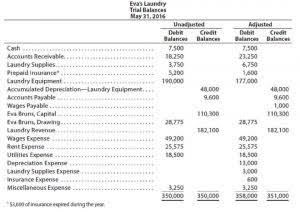At Vanguard, we offer more than 80 ETFs and more than 250 mutual funds. One fund could include tens, hundreds, or even thousands of individual stocks or bonds to help reduce the impact of a single security’s poor performance. For example, if one stock or bond in the fund is doing poorly, there’s a chance that another is doing well. This strategy can help stabilize your portfolio by potentially offsetting losses in one area with gains in another. ETFs and index funds deliver similar returns over the long term.
Available at Brokerages
Past performance of financial instruments does not guarantee future returns. Investing in financial instruments involves risk; before investing, consider your knowledge, experience, financial situation, and investment objectives. The ETF market is expanding rapidly, with more options available than ever before, including thematic ETFs and ETFs focusing on specific sectors or trends. Decide if you prefer a passive approach, where the investment simply tracks an index, or an active approach, where professional managers try to outperform the market.
When this is for a gain, the capital gains taxes are passed on to everyone with shares in the fund, even if you’ve never sold your shares. Both mutual funds and ETFs are pooled investment funds that etf vs mutual fund sell shares to investors. The proceeds are invested in a basket of stocks, bonds, or other assets, and every fund has stated investment objectives and takes on different levels of risk. It typically comes down to preferences related to management fees, shareholder transaction costs, taxation, and other qualitative differences. Unlike index mutual funds, ETFs are flexible investment vehicles that are highly liquid. They can be bought and sold on a stock exchange throughout the trading day just like individual stocks.
How to Choose the Right Mutual Funds
Now, that you have understood mutual funds, let’s understand ETF, and then we will dive into the difference between mutual fund and exchange traded fund. Some funds also charge additional fees—like early withdrawal penalties if you sell within three days of buying—so reading the fine print is essential. That said, mutual funds are generally meant for long-term investing, so withdrawals so soon shouldn’t be an issue for most.
Mutual funds vs. ETFs: A breakdown
When an investor buys a mutual fund, they contribute to a pool of money managed by a team of investment professionals. That team selects the mix of stocks, bonds, money market accounts and other options in the mutual fund. Another cost to consider is capital gains taxes, which you’re on the hook for if you sell shares of an ETF or an index mutual fund for more than the amount you paid for them. At Mintos, we provide an ETF portfolio management service that might align with your investment needs, offering a straightforward and efficient way to diversify your portfolio.
Consider investors weighing options for their long-term investment goals. Fidelity believes that short-term trading is generally not an appropriate savings strategy. As you consider ETFs and open-ended mutual funds, it is important to recognize how the vehicles’ similarities and differences may influence your investing experience. Buying and selling, pricing, disclosure, costs, holding-period return, and tax implications can all be different (see the table below).
Mutual funds and ETFs both offer a lot of investment options.
But don’t assume ETFs are always the cheapest option on the menu. It’s worth comparing ETFs and mutual funds when considering your investment options. Mutual funds and ETFs offer investors similar advantages, but there are a few key differences. With a mutual fund, you buy and sell based on dollars, not market price or shares. And you can specify any dollar amount you want—down to the penny or as a nice round figure, like $3,000. Take our investor questionnaire to find the right balance of stocks and bonds for your portfolio based on your goals and risk tolerance.
Exchange-Traded Funds
The main difference between a mutual fund and an ETF is that an ETF has intra-day liquidity. The ETF might therefore be the better choice if the ability to trade like a stock is an important consideration for you. ETFs may be more tax-efficient than mutual funds because of the way they’re created and redeemed. The creation/redemption process of ETFs distinguishes them from other investment vehicles and provides several benefits. Creation involves buying all the underlying securities that constitute the ETF and bundling them into the ETF structure.
Expert Q&A on ETFs
- An index mutual fund is designed to track the components of a financial market index, similar to an ETF.
- The number of outstanding shares can be adjusted up or down in response to supply and demand.
- While you receive the payout in cash, you may then have to turn around and pay taxes on it to the IRS.
- IShares unlocks opportunity across markets to meet the evolving needs of investors.
ETF and MF are typically designed to offer you easy access to your money. ETFs can be bought and sold throughout the trading day on stock exchanges, while MFs can be redeemed with the fund house at the end of the day. Unless individuals invest through 401(k) or other tax-favored vehicles, mutual funds will distribute taxable gains to investors, even if they merely hold the shares. Target-date funds offer a “set it and forget it” approach to investing, particularly popular in retirement accounts like 401(k)s.
But actively managed funds may have widely different results, depending on how they’re invested. Three, both mutual funds and ETFs come in a wide variety of assets and investing styles. In addition, there are equity ETFs and mutual funds that focus on factor-based strategies (a.k.a. “smart-beta” investing) such as quality or momentum. While both ETFs and mutual funds are geared toward individual investors, ETFs have increased in popularity as a low-cost alternative to more costly mutual funds. Generally, ETFs charge lower fees and have no minimum investment requirement, making them ideal for fee-conscious investors and beginners.
- This flexibility is advantageous for investors who may need to access their funds quickly.
- But not all funds offer dividends, even if they do provide a cash payout.
- ETFs are passively managed, which means the fund mirrors a particular index, making them less risky and transparent.
- When it comes to deciding between ETFs vs. mutual funds, there’s no one-size-fits-all answer.
- Most ETFs are index funds aimed at following the market by mirroring the holdings of a particular market segment like the S&P 500.
- Mutual funds and ETFs both offer the opportunity to more easily gain exposure to a large number of securities.
Mutual funds and exchange-traded funds (ETFs) are popular ways for investors to diversify but they have some key differences. ETFs can be traded intra-day like stocks but mutual funds can only be purchased at the end of each trading day based on a calculated price known as the net asset value. ETFs are generally better for frequent trading because you can buy and sell shares throughout the trading day. Index mutual funds only let you buy and sell at the very end of each trading day. ETFs typically disclose portfolio holdings on a daily basis, and the market price of an ETF can be tracked intraday during trading hours when the market is open, as with any other stock.
Vanguard ETF Shares are not redeemable directly with the issuing Fund other than in very large aggregations worth millions of dollars. When buying or selling an ETF, you will pay or receive the current market price, which may be more or less than net asset value. 1Commission-free trading of Vanguard ETFs applies to trades placed online; most clients will pay a commission to buy or sell Vanguard ETFs by phone. Commission-free trading of non-Vanguard ETFs applies only to trades placed online; most clients will pay a commission to buy or sell non-Vanguard ETFs by phone. Vanguard Brokerage reserves the right to change the non-Vanguard ETFs included in these offers at any time.















